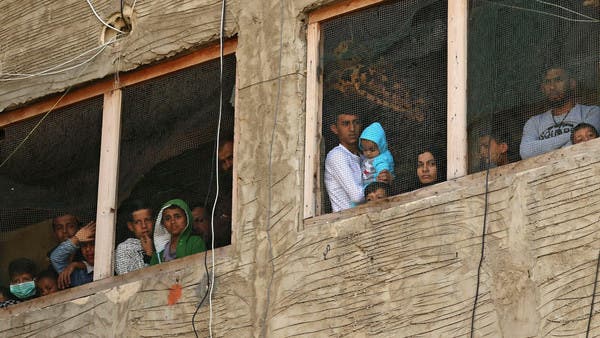A few years back, I visited refugee camps in Sabra and Chatila, Mar Elias, and Ain el Helweh among others. I still recall climbing the stairs in one of the camps, looking at the people who were clustered there through no fault of their own.
The stench of sewage went straight through my nostrils and made its way to my lungs. Whether I felt dizzy because of my asthma or the mental shock at what I saw was unclear, but my forehead became cold as ice and I fainted for a few seconds.
I went to these camps because I wanted to start asking our medical students to visit these areas and foster an understanding of the social determinants of health and how the setting, environment, and living conditions play a role in healthcare. I also wanted them to help the very few doctors volunteering in these camps. Most importantly, I wanted them to see how those who are less fortunate than they live every day.
They are called refugees, a term I never made peace with –and perhaps never will. Nowadays, to add insult to injury, the term in people’s eyes denotes people who are less worthy than they.
When it was time to visit a few patients in their homes at the camp, I had to go through a damp, cramped, and mostly-destroyed hallway that smelled of sewage. The stench made the distance feel longer than it actually was.
I was welcomed into a humble house consisting of one room and a few jagged mats on the floor. I was asked to sit and offered tea. The eight-year-old boy had an infection in his eye, one he got from work. The other seven children were also around, dressed in rugged clothes.
There was poverty beyond imagination, no money, no cleanliness, no education. Just a day-to-day mechanism of survival, made lighter (or not) by lots of love and affection.
With the advent of the COVID-19 pandemic, stores around Lebanon are now closed. People are also practicing social distancing and purchasing, if not hoarding, huge amounts of disinfectants, gloves, and face masks.
The Ministry of Health issued guidelines on how to face the pandemic. So did the World Health Organization and many other official organizations hoping to contain the disease. Military forces are doing their work to ensure these COVID-19 measures are taken. But where is all this in refugee camps?
Read also: Coronavirus, hospital fees, and medicine shortage: Lebanon’s healthcare sector under threat
In refugee camps, people live en masse in small houses, rooms or tents. Forty people live in the same so-called home. It is impossible to observe social distancing when streets are flooded with individuals who live in less than humane conditions.
In refugee camps, there is no hot water and no soap to wash hands “for 20 seconds.” Attempting to buy a disinfectant might mean no food for one day or more. There are no hygiene kits that are distributed to a poverty stricken segment of society for free, no food and water delivered to their homes without cost to contain the virus from spreading, and definitely no electronic thermometer to check temperatures. There are no test kits.
“Refugees” are shunned to the margins of society and to the brims of life. The media proudly, and perhaps carefully, broadcast images and footage of empty streets in the country and yet are silent when it comes to refugee camps –as if shunning them away from the consciousness of the public would eliminate their existence altogether. Or worse: so-called refugee camps are totally disremembered. Whichever it is, the fact remains that a portion of humanity is forgotten in an apocalyptic Neverland they did not want to inhabit in the first place.
Unless authorities, the Ministry of Health, NGOs and others do their duty towards “refugees” and help them face the pandemic, the coronavirus will spread to the entire country with time. So, here comes a selfish bit of advice: Help them so as to help yourselves.
Some of us feel ashamed when we use disinfectants in abundance knowing that kids, elderly, young men and women, and pregnant wives somewhere in the Sabra neighborhood, Shatila camp, or Ain el Helweh have nothing to rely on and no one to resort to.
COVID-19 has brought to the surface social inequalities for which “refugees” and the less advantaged are not morally responsible. A social (and moral) catastrophe leading to grave health inequalities that decide who lives and who dies.
COVID-19 has revealed a unique ecology of sickness based on social determinants of health. If no measures are taken to counter this, we are heading towards a form of eugenics based on social endowments which are morally arbitrary.


